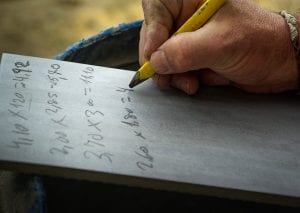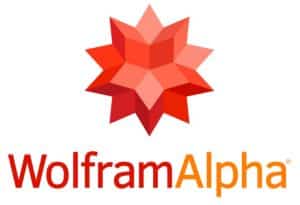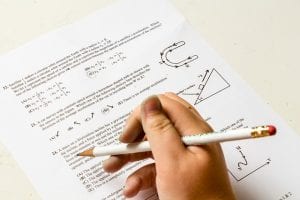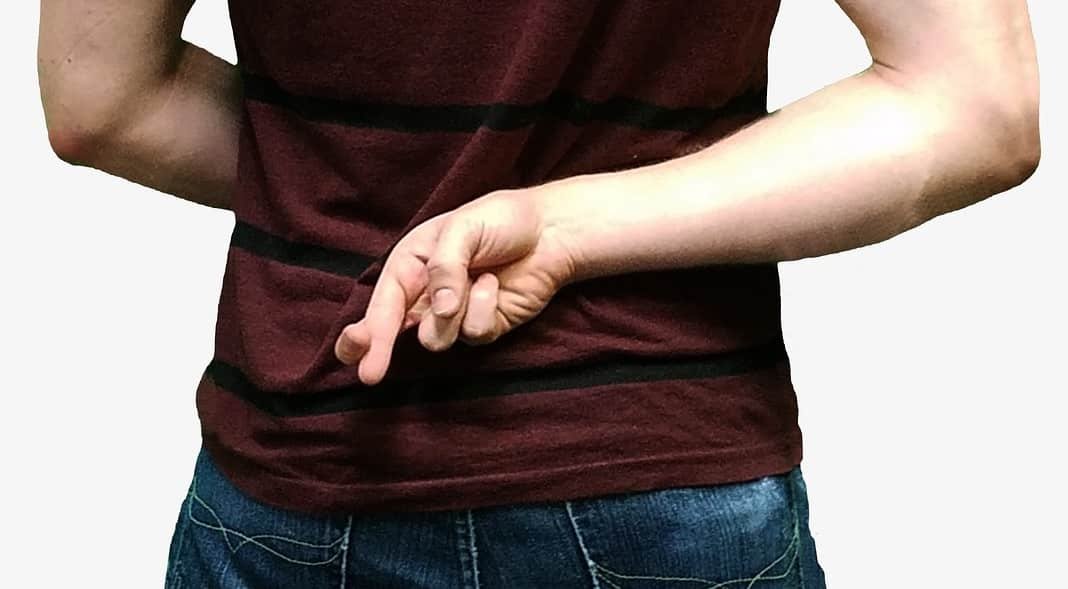The Challenge of Defining Cheating
Cheating... it isn't what it used to be...
 When I was in third grade, I struggled with my multiplication tables.
When I was in third grade, I struggled with my multiplication tables.
Though I did well in all other areas of math and knew how to multiply, I struggled to memorize the tables. This meant the weekly timed “drill” tests were a recurring source of frustration and stress.
Then one week I remembered I carried a calculator. I couldn’t recall a firm rule against it (it was unusual for kids to have calculators then so there was no need for one) and figured I’d use it. I was caught (largely because I wasn’t trying to hide it) and the teacher explained that I was cheating.
“When you grow up, you’ll need to know this. After all, you won’t have a calculator in your pocket everywhere you go!”
Thirty years later, not only do I have a calculator in my pocket everywhere I go but it’s also a messaging device that surfs the web and occasionally makes telephone calls. While I know my multiplication tables better today than I did then, it’s still a weakness though my life is none-the-poorer for it.
While I won’t go as far as to say third-grade me was right, he did accidentally hit upon one of the toughest questions in education: How do you define what is and is not cheating?
The reason is because, to first define cheating, we have to first define the point and intention of education, a mammoth question with few, if any, definite answers.
Cheating and AI
 A 2018 equivalent of the problem third-grade me is likely what happened to calculus students across the world who used Wolfram|Alpha to not only get quick answers to complicated questions, but to also show their work.
A 2018 equivalent of the problem third-grade me is likely what happened to calculus students across the world who used Wolfram|Alpha to not only get quick answers to complicated questions, but to also show their work.
Wolfram|Alpha describes itself as a “Computational Knowledge Engine”. Though not an artificial intelligence itself, it uses many of the same tools to understand language and answer a wide variety of questions.
Whether you want to know what the most populous city in Brazil is or the answer to a complicated calculous question, Wolfram|Alpha can come up with the answer. However, many teachers, understandably, will not be happy with the way it produces the answers.
Though Wolfram|Alpha provides a complete list of sources and shows its work, it does the legwork for the asker, eliminating the need to even search for the answer, let alone turn to primary sources.
To some, Wolfram|Alpha represents a form of cheating, a shortcut to doing required work. To others, Wolfram|Alpha simply represents a better calculator.
Either way, Wolfram|Alpha is not going to remain at or near the pinnacle of technology for long. Artificial intelligence is already making its presence felt in education and it won’t be long before students have access to even more advanced tools for completing assignments.
As these new tools surface, we’re going to have to ask the same questions again: Is it cheating to use them? If so, when? However, these are very complicated questions with much deeper implications.
The Purpose of an Assignment
 Students are given assignments as a combination of teaching and evaluation tool. But what their teachers are trying to teach determines the nature of the assignment and the rules around it.
Students are given assignments as a combination of teaching and evaluation tool. But what their teachers are trying to teach determines the nature of the assignment and the rules around it.
For example, third-grade me was supposed to memorize multiplication tables. The rules of the assignment were timed tests and no use of calculators. In that context, third-grade me was cheating. But, if we change the purpose of the assignment to simply getting the correct answers quickly, the tests would still need to be timed but the use of calculators becomes less a violation.
Assignments are much like sports or games in that we set up seemingly arbitrary rules to have the assignment fulfill the designated purpose. Using your hands in soccer (besides goalies and throw-ins) is cheating because it’s meant to be a sport about footwork but using your hands in basketball is a requirement because it’s a sport largely about throwing and shooting.
Once educators determine why they are giving an assignment, it becomes easier to determine what is and is not cheating. But the question of why we’re giving an assignment is a difficult and often philosophical one that delves into the purpose of education itself.
Though it’s easy to say that the purpose of education is learning or to make students better people, instructors still have to make difficult choices about what we teach and how we teach it. Schools have limited time and resources and have a wide variety of obligations.
Are the goals of education furthered by teaching students how to complete an assignment the most difficult way possible or are they better learning the tools they’ll likely be using outside of school? Oddly, that’s not a rhetorical question as every subject requires some degree of basic understanding to truly grok the more advanced tools and the roles they play.
But as these questions become a bigger and bigger part of education, they’re going to become a bigger and bigger part of students’ lives and that, in turn, is where the focus should be placed.
Asking and Answering Why
For educators, defining what is and is not cheating is going to be a more complex task and a more important task in the coming years. However, when setting those boundaries with students, it’s going to be crucial not to just explain what those boundaries are, but why they are there.
As new technology becomes available and the pace of innovation accelerates trying to prepare students for a future that may be 20 years off is going to seem impossible. But as daunting as that challenge is, there’s also the present-day challenge of setting boundaries for new technologies, technologies that students are often more comfortable with than their teachers.
Twenty years ago, questions such as “Is it acceptable for students to write programs for their calculators?” were vexing enough. What will happen when AI becomes more fully realized and students complete assignments or even write papers with little to no human involvement?
The time to think about these issues is now. Determining what the purpose of education is, how the rules of completing an assignment can aid those goals and how to relay those rules to students is crucial moving forward.
As the use of Wolfram|Alpha shows us, students are going to use new tools and may not always see eye-to-eye with their teachers with regards to what is cheating. What, to a teacher, is an unethical shortcut can be, to a student, just a better tool.
Bottom Line
There’s no easy or singular answer here. Educators are going to come up with different boundaries, approaches and ideas in this area. That is fine and is likely a good thing in the long run.
But what educators can’t do is be caught flatfooted by these issues. Wolfram|Alpha is just a warning shot and it already makes the cheating issues of 20 years ago seem like the challenges faced by third-grade me.
For too long educators have determined what is or is not cheating purely based on tradition and making exceptions only when it’s impossible to ignore new technology.
There’s a need to think about this issue comprehensively and that means starting with the purpose of education, looking at the role of assignments in fulfilling that purpose and then finding the boundaries that best aid in that goal.
Cheating will always be an issue in the classroom. But that doesn’t mean it will always be defined the same way. Now is the time to think about if and how that definition might change.
Hat Tip: Big thanks to Dr. Mike Reddy for introducing me to the Wolfram|Alpha article and kicking off this conversation. Definitely follow him on Twitter, he’s awesome!
Want to Reuse or Republish this Content?
If you want to feature this article in your site, classroom or elsewhere, just let us know! We usually grant permission within 24 hours.
